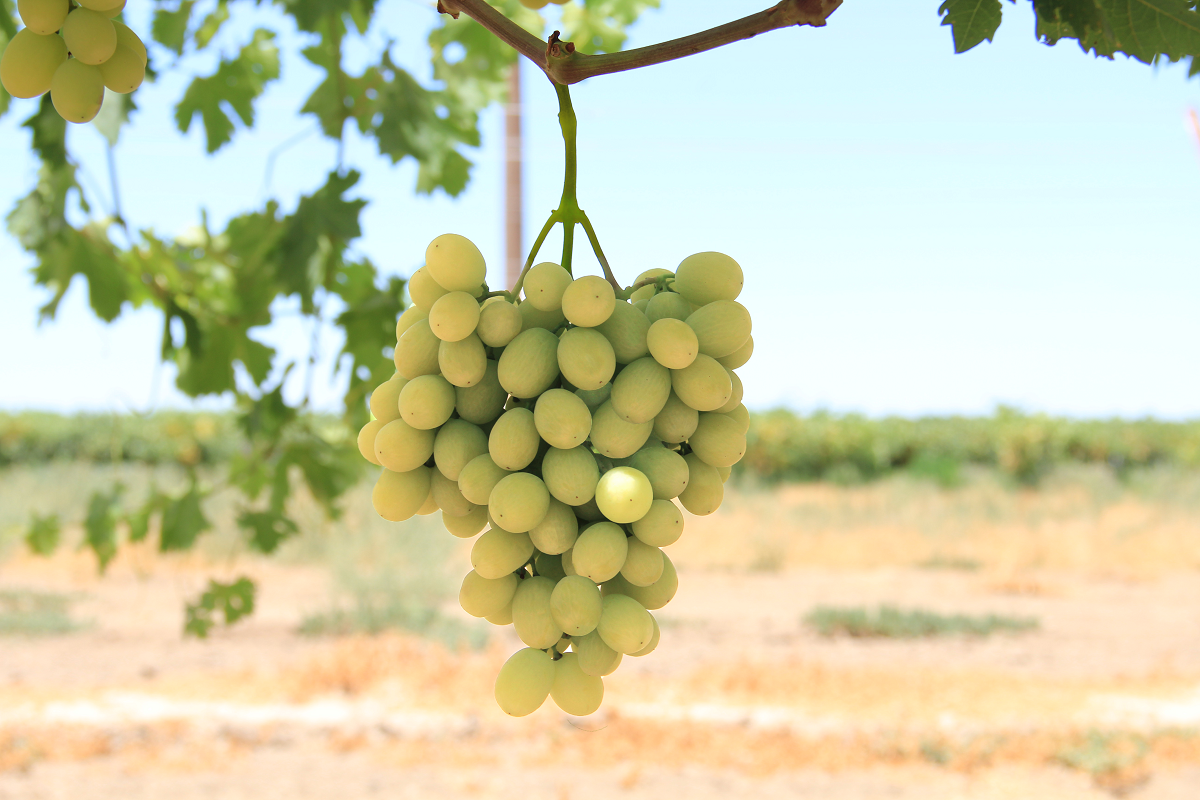
A green “ultra-early ripening green seedless grape variety with a sweet Muscat flavor and firm crisp texture” and a “midseason ripening red variety with large berries and a tropical aroma with overtones of mango” are two new grape varieties to hit the market.
According to a statement, the two varieties, Sugrafiftytwo and Sugrasixty, respectively, are the fruit of a 13-year collaboration between Cornell AgriTech and Sun World International.
Following the release of these varieties, Sun World’s will enable growers around the world to produce these Cornell-Sun World varieties and introduce them with consumer-friendly brand names.
Through the partnership, the royalties from the commercialization of the varieties developed by both organizations will continue to flow back to and support the Cornell Grape Breeding and Genetics Program, which is led by Bruce Reisch, a professor in the School of Integrative Plant Science in the College of Agriculture and Life Sciences.
“With the right varieties, the Eastern table grape industry might consider expanding,” Reisch said. “That could drive economic development through tourism, farm markets and home enthusiasts. Many home growers are interested in doing something new.” Reisch credits Cornell’s partnership with Sun World for making the development of these new varieties possible.
Sugarfiftytwo and Sugrasixty are the first grape varieties resulting from the partnership, which began in 2009.
 Sugrafiftytwo
SugrafiftytwoThe new flavors were developed through crossbreeding at Cornell that took advantage of its collection of germplasm, the genetic material in grapes that controls the expression of certain traits. Although all breeding collections include germplasm, Cornell’s said theirs is special; since 1888, scientists at Cornell AgriTech have built expertise in breeding table and wine grapes suited to New York state’s climate and grower needs.
For the past 42 years, Reisch has focused on developing improved genetic and trait-marker technology to mine the genetic diversity of wild and native American grape species; and speed the release of new varieties with desirable traits like powdery mildew resistance, cold-hardiness and early ripening.
“Under Professor Bruce Reisch’s leadership, Cornell has pioneered the development of new table and wine grape varieties with unique flavor profiles well-adapted to the northeastern United States’ colder growing conditions,” said Sun World CEO David Marguleas.
“These advances, coupled with our own California-based seedless grape development work spanning several decades, make for a distinctive combination.”
Increased exports from outside the U.S. and the proliferation of proprietary varieties are creating challenges for retailers and consumers, said Jennifer Petersen, Sun World’s Chief Science Officer. Public institutions are an important source for innovation, especially as farmers and society face more complex challenges like climate change.
The Sun World partnership also unlocks research efficiencies for Reisch’s program and its future. The steady stream of funding for public specialty crop research helps insulate it from the vagaries of grant cycles. Cornell’s breeding program also has access to Sun World germplasm with seedlessness, storage and shipping traits.
“Several more product releases are on the Cornell-Sun World horizon,” Marguleas said. “By combining our independent breeding efforts, we can develop even better tasting and more successful fruit varieties for growers and consumers around the world to enjoy.